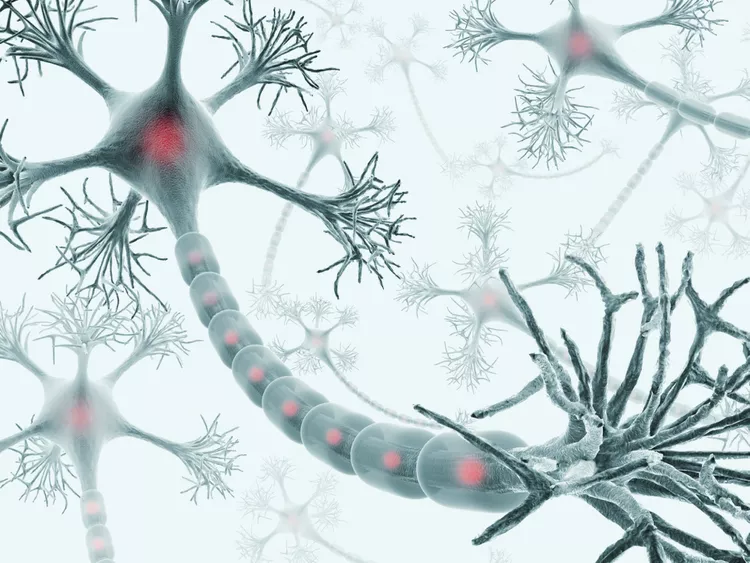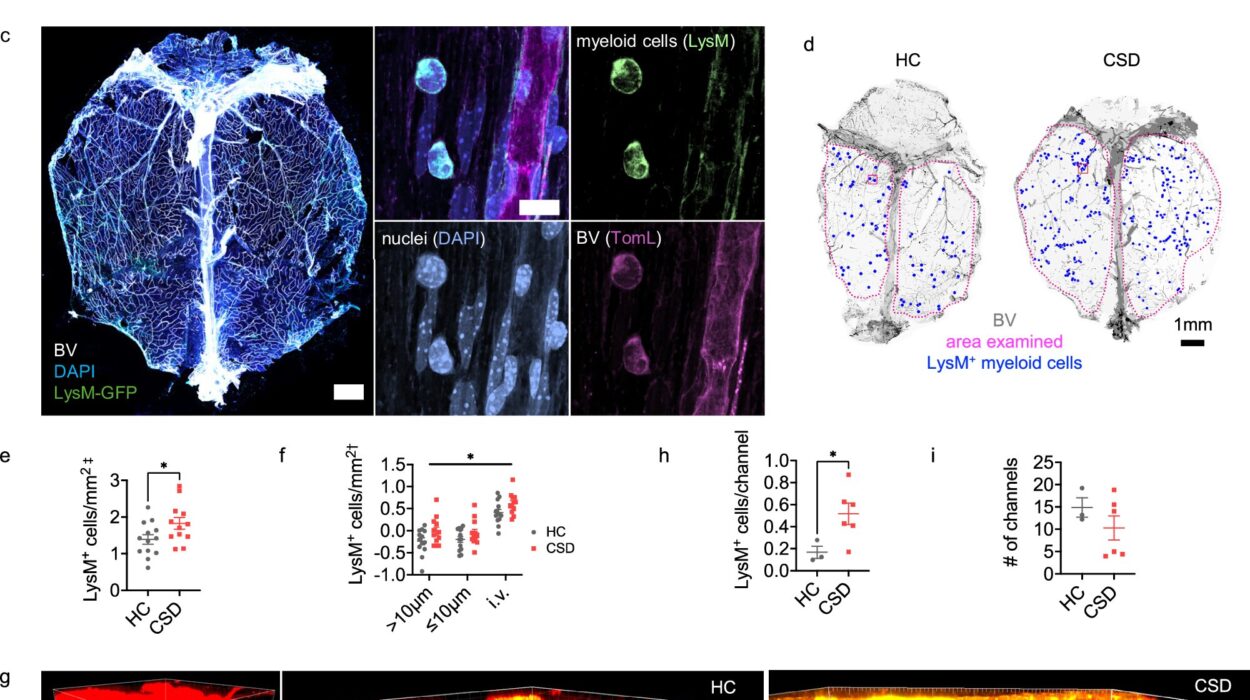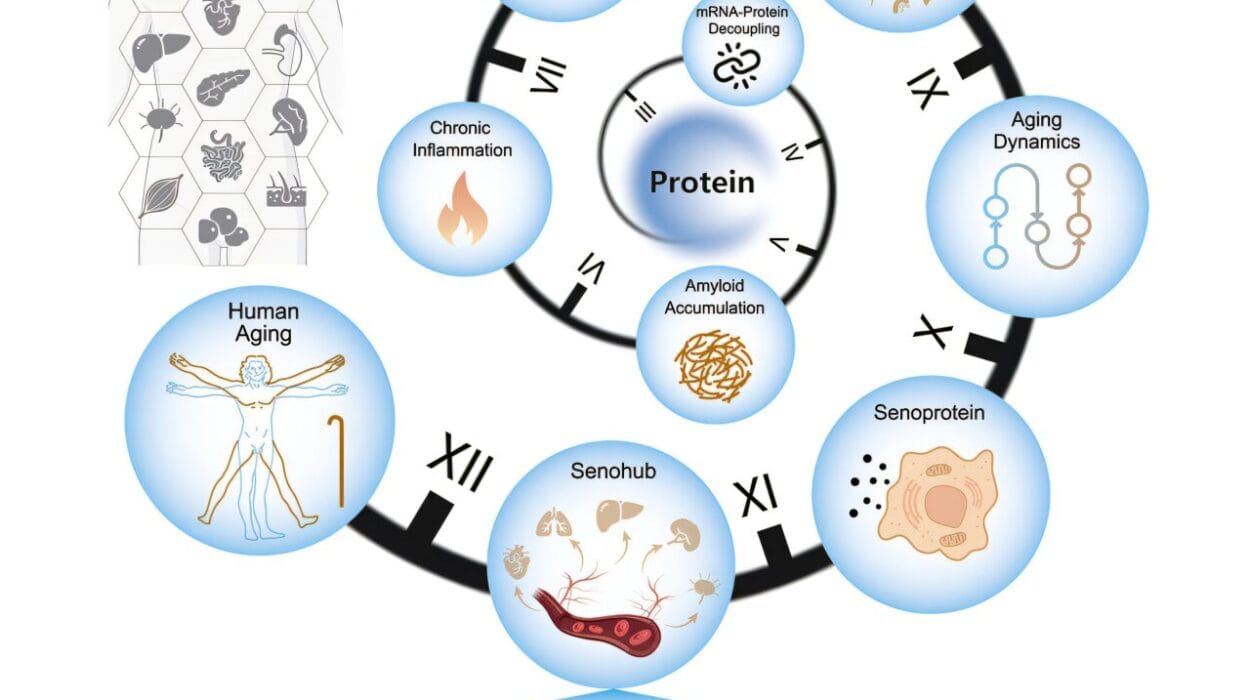In a quiet laboratory nestled within the Buck Institute for Research on Aging, a team of scientists has unearthed a secret that could reshape our understanding of Alzheimer’s disease—and it lies not in a new drug, nor a genetic breakthrough, but in sugar. Not the sugar you stir into coffee, but a humble, overlooked sugar molecule stored deep in our neurons—glycogen.
Long dismissed as a negligible presence in the brain, glycogen has traditionally been viewed as the body’s backup energy source, stockpiled in the liver and muscles. In the brain, small traces exist in support cells known as astrocytes, but it was widely believed that neurons—the cells most affected in Alzheimer’s—had little use for it. That idea has just been turned on its head.
A new study, published in Nature Metabolism, reveals that this neglected molecule may actually play a heroic role in protecting the brain from toxic protein buildup and the slow march of neurodegeneration. Led by Dr. Pankaj Kapahi and postdoctoral researcher Dr. Sudipta Bar, the research paints an entirely new picture of how the brain’s sugar economy could be weaponized in the fight against Alzheimer’s and other dementias.
Glycogen: From Background Player to Neuroprotective Agent
The revelation came through a careful investigation of tauopathies—a group of neurodegenerative diseases, including Alzheimer’s, defined by the accumulation of tau protein tangles in the brain. In both fruit fly models and human-derived neurons mimicking these conditions, researchers discovered a striking and previously unseen pattern: neurons were hoarding glycogen.
But rather than serving as a helpful reserve, this glycogen was locked in place, bound tightly by the very protein meant to be cleared—tau.
“It was like discovering a warehouse full of supplies that no one could access because the doors were welded shut,” said Dr. Bar. “Tau seems to physically trap the glycogen, blocking it from being used. And without access to that fuel, the neurons lose a critical ability to defend themselves.”
That defense, as it turns out, doesn’t come from burning glycogen for energy. Instead, neurons channel its breakdown products through the pentose phosphate pathway (PPP)—a metabolic route not for power, but for protection. This pathway produces NADPH and glutathione, molecules essential for neutralizing oxidative stress, one of the most damaging forces in aging and brain disease.
When glycogen can’t be broken down, neurons are left vulnerable. But when the researchers restored the activity of glycogen phosphorylase (GlyP)—an enzyme that kicks off the glycogen breakdown process—everything changed.
Reversing Damage by Unleashing Sugar’s Potential
By boosting GlyP activity in fruit flies with tauopathy, the team saw remarkable results. Oxidative damage decreased. Tau-related degeneration slowed. Lifespans even extended.
“These weren’t subtle effects,” said Dr. Kapahi. “We saw strong neuroprotection simply by unlocking the sugar the neurons already had.”
The neurons weren’t using glycogen to fuel electrical activity or maintain their structure—they were breaking it down to fortify their chemical defenses.
It’s a metabolic detour that few scientists expected. But to the brain, it may be life-saving.
Dietary Restriction, Drugs, and the Sugar Switch
The study took an even more intriguing turn when the researchers introduced dietary restriction (DR)—a well-known longevity intervention—and found that it naturally enhanced GlyP activity. In flies, DR improved outcomes in tau-related disease models by tapping into the same sugar-clearing system.
To mimic this effect without food restriction, the team used a molecule called 8-Br-cAMP, a drug that activates the glycogen-clearing process. The result: similar benefits, without changing diet.
“This connection could explain why GLP-1 drugs, like those used for diabetes and weight loss, are now showing promise in dementia research,” said Kapahi. “They might be mimicking the effects of dietary restriction on brain sugar metabolism.”
In a sense, the brain has its own secret sugar switch. And flipping it may reduce damage, slow disease, and even improve lifespan.
From Fruit Flies to Human Neurons
Skeptics might question whether findings in fruit flies can apply to the complexity of the human brain. But this study goes further. Using human stem cell-derived neurons from patients with frontotemporal dementia (FTD)—a disease related to Alzheimer’s—the researchers confirmed similar patterns of glycogen accumulation and protective effects from activating GlyP.
“The fly is a powerful model,” said Kapahi, “but what makes this study especially exciting is how directly we were able to carry our insights into human cells.”
The collaboration that made this possible spanned multiple labs and areas of expertise. Proteomics support came from the Schilling Lab, human stem cell work from the Ellerby Lab, and metabolic guidance from Emory University’s Seyfried Lab. The result was a holistic, multi-layered look into how one humble molecule—when freed from its bonds—can shift the course of brain aging.
A New Chapter in Dementia Research
As Alzheimer’s research continues to chase elusive cures, many strategies have focused on removing harmful proteins or boosting brain resilience. This study offers a fresh perspective: empower neurons not with an external fix, but by unlocking their internal chemistry.
“By understanding how neurons manage their own sugar stores, we’ve opened the door to a whole new therapeutic approach,” said Kapahi. “This isn’t just about glycogen—it’s about the overlooked systems our cells already have, and how we can reawaken them.”
There’s still much to learn. Could GlyP-targeting drugs slow Alzheimer’s progression in humans? Could metabolic tuning protect healthy brains from degeneration before it begins? And how early in life might these sugar pathways shape cognitive aging?
What’s clear is that glycogen—long ignored in brain science—is now emerging as a key player in the very diseases we fear most.
Hope from Within: The Brain’s Chemical Shield
In the end, the study isn’t just about sugar or enzymes. It’s about resilience. Deep within our neurons lie the tools to fight back against stress, age, and decay. Sometimes, they need only a nudge.
“As we continue to age as a society,” Kapahi reflects, “findings like these offer hope. By better understanding—and perhaps rebalancing—our brain’s hidden sugar code, we might unlock powerful tools for preventing and treating dementia.”
The message is both simple and profound: The brain, when given the chance, may already know how to heal itself.
Reference: Neuronal Glycogen Breakdown Mitigates Tauopathy via Pentose Phosphate Pathway-Mediated Oxidative Stress Reduction, Nature Metabolism (2025). DOI: 10.1038/s42255-025-01314-w






